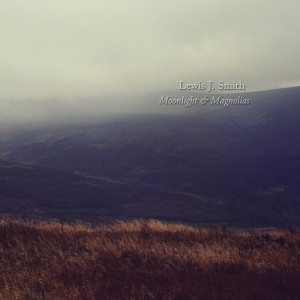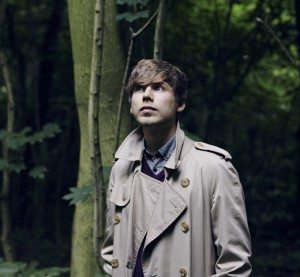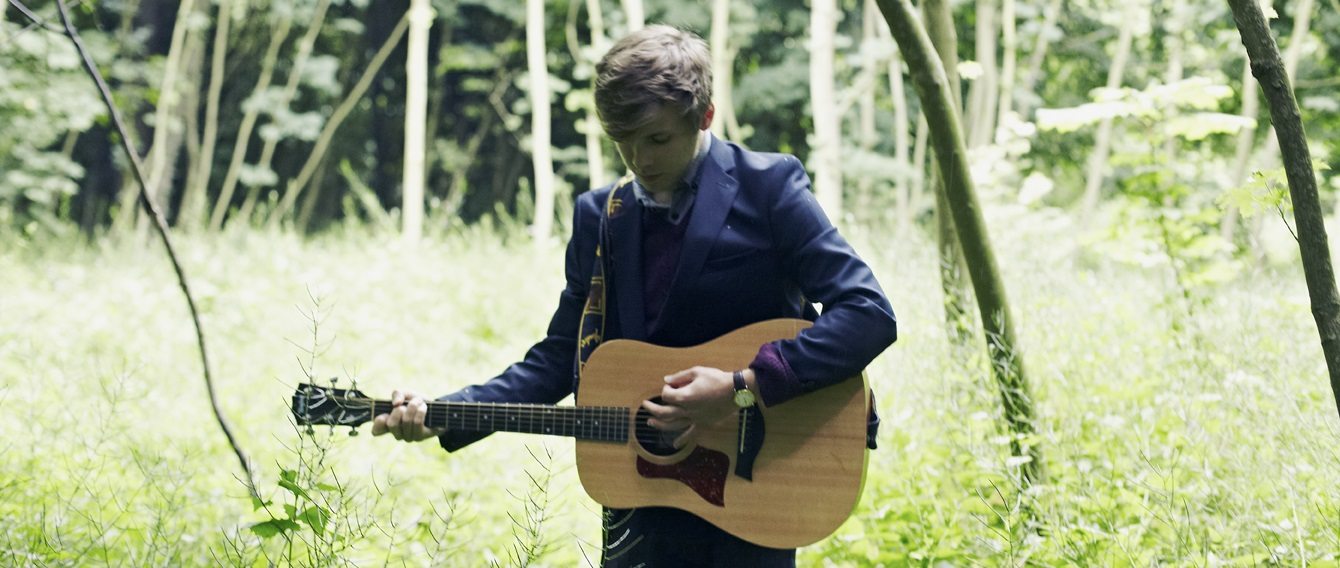Local Talent: Lewis J. Smith
Lewis J. Smith is a man of many talents. Alongside powering through his final year of studying History, regularly performing acoustic sets in local venues, and helping ferry newspapers up to the Boar office, he has recently released his debut EP Moonlight & Magnolias. In the wake of the EP’s launch event, Lewis sat down with Boar Music to chat about his experiences as a student musician at the University of Warwick.
Boar Music: Where did your passion for music first manifest itself?
Lewis J. Smith: I’ve always grown up with music an integral part of my life, and I can remember going to see Counting Crows with my Dad when I was about ten years old. Above anything else, I’ve always been drawn to the idea of music as something to be enjoyed above all else. I started playing guitar at the age of twelve or thirteen, but I only really started taking it seriously in the last couple of years.
BM: So has it only been quite recently that you’ve started writing your own material?
LJS: I’ve written songs since I was about fourteen, but I’ve only started to write good songs in the last few years. Well… better songs, at least!
BM: Your debut EP is now available in digital and physical formats. Tell us about the EP’s style and character, in your own words.
LJS: Essentially, it’s a collection of songs about storytelling. I really like storytelling, having grown up listening to a lot of folk music, and it’s a style which is often discredited in today’s age, to a degree. As a History student, I’m very much geared by my education  towards digesting facts, and I’m only able to weave stories outside of my coursework. So I really enjoy storytelling, and the main concept that I had in mind for Moonlight & Magnolias was considering the stories we tell, and our own roles within those stories.
towards digesting facts, and I’m only able to weave stories outside of my coursework. So I really enjoy storytelling, and the main concept that I had in mind for Moonlight & Magnolias was considering the stories we tell, and our own roles within those stories.
BM: In that vein, you have stated online that ‘The Man Who Planted Trees’ has its roots in traditional folk tales.
LJS: Definitely; I’d say that most of my influences are literary, and ‘The Man Who Planted Trees’ is based on a short story by [French author] Jean Giono. That song became my centrepiece, in a way, which I could build other songs around.
BM: Like planting your own tree?
LJS: That was the seed! On a similar note, the title track was written while I was reading the works of William Faulkner, which brought to mind the idea of setting these tales to music. The whole EP is a story in itself; ‘Moonlight & Magnolias’ is a summery track, before ‘Reflections on Uncivilisation’ sets up a relationship within a crazy, unsettled world.
BM: Would you say that this is one of the main focus points of the EP’s storytelling? Reflections on this crazy, unsettled world?
LJS: In a sense, yes. We live in an age when our lives are surrounded by crises. We’re repeatedly told we’re these incredible, individual agents who can do whatever we want, but every day we experience crises in various forms, which we are often helpless to react against. And this concept forms the framework of the EP.
BM: And of course, you made the EP during your year out.
LJS: Yes, I was in Paris. I actually wrote the title track instead of doing an exam.
BM: … right…
LJS: [laughs] I was doing a module on the Deep South of America, and by the end of the autumn term, I had a lot to contend with. I emailed the teacher, saying that I wasn’t going to do very well on the exam, and I asked if she wouldn’t mind me submitting a song instead. And she agreed, so thus came about ‘Moonlight & Magnolias’! Admittedly, the song was written and then applied to the module, but I did shape it in a relevant way. From there, everything was quiet until I finished studying in April, but I was staying in Paris until the end of July, so I had a few months to write, formulate and record everything.
BM: Along with the Deep South, there are quite a range of influences listed on your Facebook page, among them the likes of Phosphorescent and Iron & Wine. Which artist(s) would you most like to emulate in your own musical career?
LJS: Well, I really admire Samuel Beam [Iron & Wine] for how he constantly evolves his approach to music. He seems to be able to construct a band whenever he wants to, and on top of that, he’s got a recording studio in his home: something which would be great to have. I’d also just love to have a beard as good as his. Otherwise, Phosphorescent as a band are just incredible, yet it all stems from the mind of Matthew Houck. It’s this kind of dynamic which reveals the power of a single idea, which collaboration can then help realise and polish into a final result.
Kickstarter helped me discover a very reciprocal relationship with listeners, wherein your music can help other people. Even if it’s just making somebody happy for a moment, that is such a rewarding thing to be a part of.
BM: And what about your lyrical influences? In addition to traditional folk storytelling, are there any musicians out there whose writing has informed your own?
LJS: There’s a band called the Willard Grant Conspiracy: a project which – again –stems from just one guy. And it’s almost cliché to refer to him, but Bob Dylan as a storyteller and songwriter holds sway over everything. The same goes for Joni Mitchell, Neil Young, and The Felice Brothers – they’re fantastic.
Ultimately, it’s really hard to write a three-minute song in which you can say everything you want to say. The same goes for poetry, I suppose: you can never quite encapsulate everything you want to in a single phrase. It’s possible to capture an idea or a feeling, but exploring every facet of that is incredibly difficult, and there are only certain people who have succeeded in that regard. I’d say the likes of Bob Dylan and The Felice Brothers are among those rare few.
BM: Of course, you are working as a student as well as a songwriter. How do you find time to balance your musical life with both your education and your social existence?
LJS: Well, I like to see music as a social activity. Using music as a facilitator for shared experiences is always good fun; bringing together your friends, and making music while having a beer or two is hard to top. And performing live is a great example of creating a space where an experience can be shared and enjoyed.
BM: Speaking of live performances, you have played many times in venues on-campus and in the surrounding area. What do you think of the local music scene in Leamington, Coventry, and on-campus?
LJS: I think it’s really good once you realise it’s more than just a student scene. There is no denying that there are some incredibly talented musicians at Warwick, and going to Beats & Bars always confirms that, but at the same time, there are a lot of local acts which have carved really interesting paths. The Grand Union regularly offer open mic nights, and there’s seldom a student in sight, but every single time you’ll find a whole host of acts and musicians.
BM: Would you like to encourage students to participate more in the wider music community?
LJS: Well, my tendency in first year was to pretend that the outside world didn’t exist, but having since started performing, I’ve found that most of my favourite events are those which aren’t student-specific. There’s one particular pub in Leamington called the Somerville Arms, which is possibly the best place in the world [laughs]. Every other Wednesday, they have a bluegrass night, with tap-dancers, fiddle-players and everything. Every week these older musicians come together and have a brilliant time, and it’s fantastic to consider that we have these events available to us, because not every university out there does.
BM: So you’re saying to scratch beneath the surface, and find things beyond student-events.
LJS: They are fantastic, but yes, they aren’t the be-all and end-all. It’s good to keep an open mind.
BM: On that note, what would you recommend to other budding student musicians who want to get involved in the music scene?
LJS: First of all, make sure you have some songs that you feel comfortable playing. Either your own songs or cover songs: ones which you take pride in, and which you are genuinely interested to see how people respond to. Because, naturally, if you turn up and you’re  not prepared, it won’t be of any use to you, or the audience. Both sides need to take something from your performance. But if you are committed to performing, all you need is a couple of songs to go and play an open mic night, so I’d say just go and explore. Personally, I try to go to one open mic night per week, because it’s all good practice, and it widens your fan-base in the process.
not prepared, it won’t be of any use to you, or the audience. Both sides need to take something from your performance. But if you are committed to performing, all you need is a couple of songs to go and play an open mic night, so I’d say just go and explore. Personally, I try to go to one open mic night per week, because it’s all good practice, and it widens your fan-base in the process.
That’s a reason why I love Soundcloud, because it exists as a virtual community where people can send feedback and encourage you to perfect things. Some of them can be a bit weird: I’ve had one which is something along the lines of “this makes my nipples pointy!” What does that even mean?! That’s not a thing! [laughs] But then, you can use that online space when drafting demos, and from there you can have a lot of beneficial feedback; ideas for what to augment and change both as a songwriter and as a recording artist. Because when you’re recording, you are limited by your own speakers, your own headphones, and it’s helpful to have another perspective.
BM: This is a slightly vague question, but in line with your own goals, in an ideal world, how far would you like to take your musical career? Where would you like to find yourself in a decade’s time?
LJS: Well, as long as I’m not dead, that’ll be a blessing! I have this concern that I’m going to die at the age of 28, because I’m not worthy of the 27 Club! [laughs] I guess, for me, it’s not about being a global superstar, but it’d be really nice to be able to tour consistently with a band, and see new places through music.
BM: That’s a lovely manifesto: to see new places through music. On the flipside to that question, what would you say has been the high-point of your music career thus far?
LJS: Using Kickstarter was really eye-opening, because that was the first time I’d shared my music on a serious scale. Having complete and utter strangers investing in me was such an experience. People I had never met, knew nothing about and lived on the other side of the world were donating to my music, which was so humbling. Getting messages of support and gratitude from those people was wonderful. It validates everything you’ve worked for, which helps you as an artist. It’s a reciprocal relationship, where your music can help other people. Even if it’s just making somebody happy for a moment, that is such a rewarding thing to be a part of.
BM: For what it’s worth, I found ‘Across the Shore’ to be a wonderful piece of songwriting.
LJS: Thank you so much! That’s the saddest song on the EP. In ‘The Man Who Planted Trees’, the “hero” wanders off into the desert, gets saved and finds this magical kingdom. So he decides to stay there, and his lover back home is left isolated, wondering where he is. That’s part of the arc of the EP: ‘Reflections on Uncivilisation’ revolves around this guy finding a refuge from a storm, and in doing so, he finds an escape from society. He thinks he will die until he finds the man who planted trees, and then the next song [‘Across the Shore’] is his lover calling out to him to return. I was pondering what people leave behind when they make such choices, and how they deal with sadness and chaos and destruction. The last song, ‘Song for a Kingdom’ is him coming back to her. ‘Across the Shore’ was just so sad I had to put an interlude after it… [laughs]
To find out more about Lewis J. Smith and his music, check out his Facebook and Soundcloud pages.

Comments